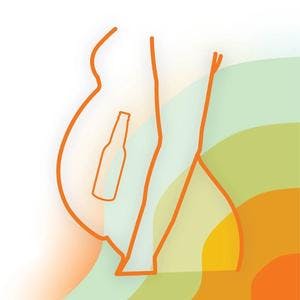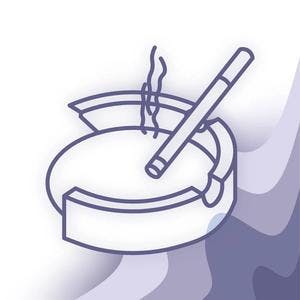What is Family Planning?
The ability to attain a desired number of children with the spacing of your choosing between the children is family Planning. A significant portion of Family planning pertains to contraception.
Family Planning is important, because people should be able to choose and control when they want to fall pregnant. Additionally, contraceptive use is important in the fight against HIV/AIDS. Planning a pregnancy helps you prepare and it helps you have a baby when the time is right for you.
Of importance, your healthcare provider should provide you with all the available options (name, action, duration, side effects, etc) suited to meet your physical, social and psychological needs and thereafter you can make the decision on the contraceptive method you want to take. This is called informed consent.
Barrier methods
Male condom
The male condom covers an erect penis to catch sperm as its being released during sex. Condoms offer protection against both infections and pregnancy when used correctly. Please check additional resources on how to correctly use this condom.
Condoms should not be used with lubricants that are oil-based, including creams, as these damage the latex material.
Female condom
The female condom is placed on the vagina or anus before sexual intercourse to prevent the entry of sperm or infections during sex. It is made of rubber and has two rings to assist insertion and ensure correct position. Please check additional resources on how to correctly use this condom.
The female condom is not affected by oil-based lubricants.
Hormonal methods
Hormones are chemical messengers of the body. hormonal methods relate to the use of hormones to achieve contraception. The hormones are similar to the body’s hormones and are safe to use, unless contraindicated in certain medical conditions. The two common hormonal methods are the Combined Oral Contraceptive (COC) and the Progestogen only Pill (POP).
The COC is commonly referred to as “The Pill” and the POP as “The Mini-Pill.”
COC/ The Pill
The pill is a combination of two hormones in pill form. It is highly effective when taken daily and is safe when certain diseases or conditions, such previous heart disease, are excluded. You can return to fertility without delay after discontinuing the pill.
If you start the pill within 5 days of your cycle, the pill offers immediate protection. If not, the protection the pill offers is delayed by about 7 days. It is advisable to continue condom use while you are on the pill. Condoms are a form of contraceptive (barrier methods) and the use of these two different methods is called dual protection.
Dual protection is important as it is highly effective at preventing both pregnancy and sexuall transmitted infections, including HIV.
Common side effects
- Nausea
- dizziness
- moodiness
- mild headaches
- tender breasts
- breakthrough bleeding
These side effects can occur within 3 months of initiating the pill and usually resolve on their own thereafter.
The pill is advised against in people with or who:
- breastfeeding newborns who are less than 6 weeks old (3 weeks old if not breastfeeding). The pill is safe outside of these times.
- smoke 10-15 cigarettes per day and are over 35 years old
- migraines
- hypertension and other heart disease such as a previous heart attack
- diabetes for over 20 years.
- TB medication
Ask your healthcare provider about these contraindications to make the best decision when choosing a method.
What happens when you miss a pill?
- Missed one pill (one day) - Take the missed pill as soon as you remember and continue taking the other pills at the usual time.
- Missed two or more days
- Take only the recently missed pill as soon as you remember. discard the others that are missed.
- Continue to take pills at the usual time
- Use condoms or avoid sex until 7 consecutive pills have been taken.
POP/MINI PILL
The POP/miniPill has similar efficiency as preventing pregnancy compared with the combined pill (COC). It works by thickening the cervical mucus to block entry into the uterus. It must be taken around the same time everyday with no break in between. The minipill is safe or relatively safe to use in the list of contraindicated conditions of The pill/ COC, except with TB medication.
Of importance, it becomes effective after two days (48 hours) of starting. Dual contraception is therefore recommended before the 48 hours and after to prevent STIs.
Common side effects
- Same as the combined pill
- changes in menstrual bleeding or spotting.
What happens when you missed a mini pill:
By more than 3 hours:
- Take pill as soon as you remember
- keep taking one pill a day as usual
- use condoms or avoid sex for the next 48 hours
There are longer-acting forms of contraceptives you do not have to take every day and every menstrual cycle. These are divided into those that can be reversible and into those that are not reversibles.
Long-acting reversible contraceptives
Long-acting reversible contraceptives include:
- Injections
- Depo-Provera (3-month injection)
- NET-EN (2-month injection)
- Implants
- implanon
- single rod (3 years)
- two rods (5 years)
- implanon
- Intrauterine contraception (IUD)
- Copper IUD (10 years)
- Nova T (5 years)
- LNG-IUS (5 years)
Injections
injections are a highly effective contraceptive method. They contain the similar hormones as found in the pills. They act by preventing release of the egg by the ovaries and preventing sperm entry into the uterus. There are two types of contraceptive injections available in South Africa:
- Depo-Provera (3-month injection)
- NET-EN (2-month injection)
The injections are given by your healthcare provider. if you receive your injection within 7 days of your cycle, it offers you immediate protection. however, if received after day 7, you should use condoms or avoid sex for the next 7 days.
Common side effects
- Irregular bleeding or spotting. This is a common side effect and should decrease over time.
- Loss of periods. This is normal with some contraceptives and is not harmful
- weight gain. the injectables can increase your appetite
Return to fertility
Unlike the pills, injections cause a delay to return to fertility once you stop the contraceptive method. This is not harmful to the ability to conceive. the delay is:
- 6 months for the 3-month injection (Depo Provera), and
- 4 months for the 2-month injection (Net-En).
What happens when you miss an injection date
You can still receive your reinjection if you have missed the Depo (3-month injection) by less than 4 weeks and Net-En (2-month injection) by 2 weeks.
The injections are advised against in people with or who:
- Have breast cancer currently
- Breastfeeding for less than 6 weeks. Injections are safe to use after 6 weeks of breastfeeding
Implants
Implants, commonly referred to as Implanon or Implanon Next, are highly effective contraceptives. An implant is a small 4cm rod that is inserted under the skin of the upper arm leaving no scars. It releases a small amount of the progesterone hormone into the body, and thus works similar to the progesterone only pill (POP or mini pill) and thus has the same side effects as the mini pill. The implant can last for 3 years.
Importantly, The implant releases a smaller amount or concentration of hormone than the pill and/or mini pill and the side effects occur less and are milder if they do occur.
If the implant is inserted within the first five days of your period/cycle, it offers immediate protection. If it is inserted after five days, it is advisable to use a condom or avoid sex for seven days. Condom use is always recommended for the prevention of STIs including HIV.
Unlike the injections, there is immediate return to fertility with removal of the implant. You also do not have to wait for 3 years to remove the implant, you visit your nearest healthcare provider for removal as you wish.
IUD- intrauterine device
Copper IUD (Cu IUD)
The IUCD is a small device made of plastic and copper that is inserted into the uterus. It is safe and highly effective at preventing pregnancy. The Cu IUD works by preventing sperm movement inside the uterus. It’s effectiveness runs for 10 years and is removed thereafter. The Cu IUD does not interfere with penetrative sex.
The Cu IUD offers immediate protection when inserted in the first 12 days of the cycle.
Return to fertility is immediate when the Cu IUD is removed.
Side effects
- Menstrual changes. Periods might become heavier, longer and with cramps. These occur in the first 3-6 months.
After its insertion, one has to follow up at a healthcare facility at week 6 after the insertion and then at removal after 10 years, or at any time of choosing.
At the time of insertion, warning signs must be communicated which should prompt return to the healthcare facility. These are:
- Offensive or discoloured vaginal discharge
- Missed period
LNG-IUS/Mirena
The mirena releases the hormone found in the implants and POP directly to the uterus and surrounding structures. This causes it to have fewer side effects compared to the hormonal methods. It is highly effective at preventing pregnancy. It lasts for 5 years.
If the IUS is inserted within the first 7 days of your period/cycle, it offers immediate protection. if it is inserted after 7 days, it is advisable to use a condom or avoid sex for seven days. Condom use is always recommended for the prevention of STIs.
Return to fertility is immediate with removal.
Sterilisation methods
Tubal ligation “Tying of tubes”
Tubal ligation is a permanent surgical method of contraceptive in which the fallopian tubes are tied using clips or rings. This prevents the sperm from reaching the ovaries. Due to this blockage, tubal ligation is effective immediately after the procedure at preventing pregnancy. The surgery is done under anaesthesia and is thus not painful.
Tubal ligation does not affect periods or sexual desire and sexual function.
Vasectomy
Sperm is part of a mix called ejaculate. This mix is called semen. Semen is what is ejaculated from the penis during stimulation.
Vasectomy is a permanent surgical method of contraceptive in which ducts called vas deferens are cut. This prevents sperm from mixing with ejaculate. A vasectomy is done under anaesthesia and is thus not painful.
A vasectomy does not affect ability to get and maintain an erection, sexual desire or to ejaculate.
It takes on average 3 months for the ejaculate to be clear of sperm. It is advisable to wear condoms until then.
A common side effect for sterilisation methods of contraception is pain after the operation. This is managed by pain medication and the pain lasts for a few days.



